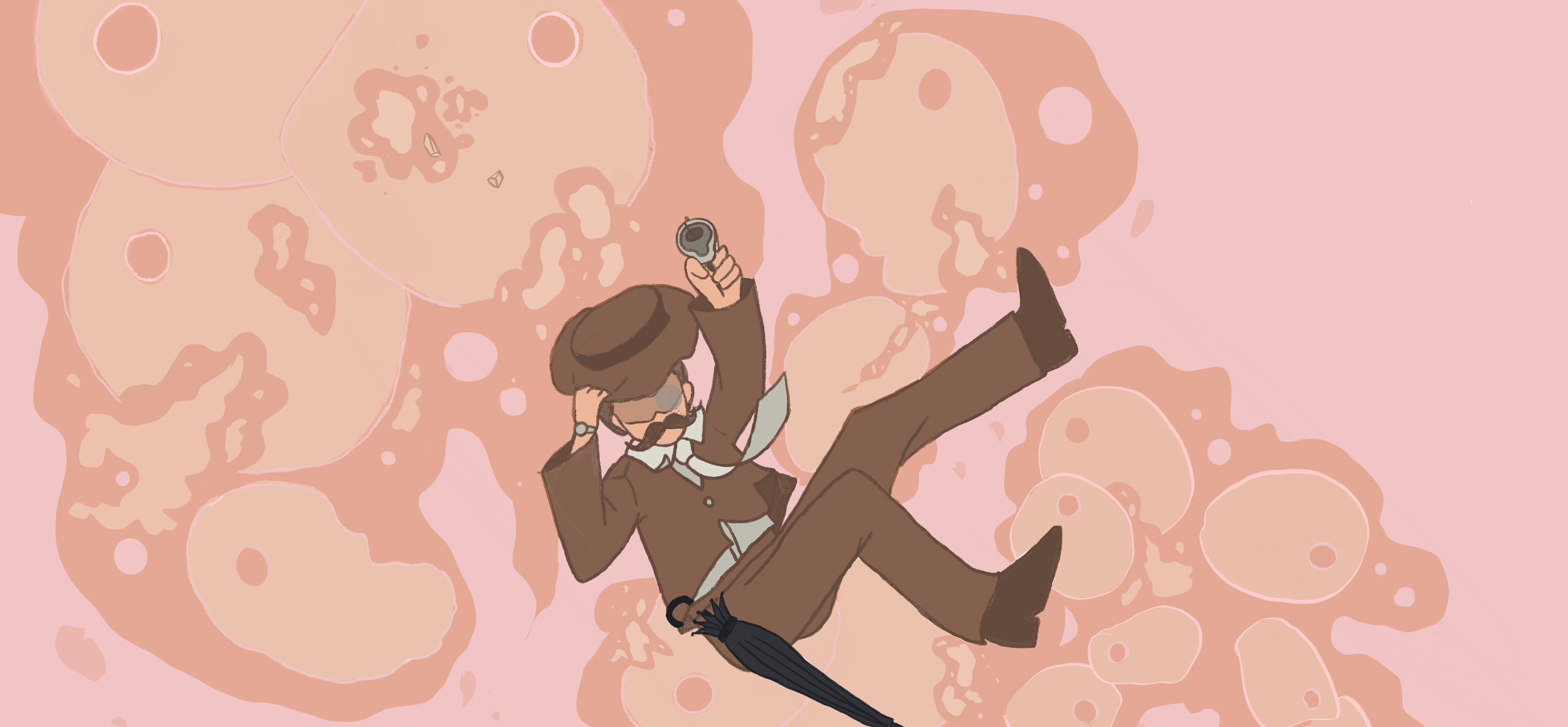

Partnership with SMS
Research
At the start of the project, both teams didn't know what to do. GreatBay_SCIE partnered up with SMS_Shenzhen during this process and spent several weeks on formulating projects, during which the two teams looked at many problems, from environmental to social.
We had meetings every 2 or 3 weeks to share our ideas on current issues and how we might solve them. Though we parted ways later on the type of project we worked on, we learned a lot from each other.
When SCIE first raised the concern of the current treatment of breast cancer, SMS quickly proposed several ideas such as the use of hemolysin as a new type of drug, and provided SCIE with literature to read as some of their team members have past read about them.)

This inspired SCIE to come up with a delivery system to deliver hemolysin, which later became the core part of our project (the hemolysin idea was abandoned as SCIE learned about toxicity of drug through our interview with experts and decided that hemolysin was not a good enough replacement for current drugs and moved on to develop a novel delivery system that used aptamers); the help from SMS was crucial.
SCIE also did its best to help SMS. Several of SCIE's team members researched environmental problems in modern-day society, such as the breakdown of plastic or polyethylene in masks. When they mentioned breaking down Gum Base, one of the SCIE's team members, Albert, proposed a method using RoxA or RoxB pathway, which is a biological way to degradation the gum. He then did some further research and found some literature that would become a part of SMS's project later.
Other great ideas were also formulated during the discussion between the 2 teams, not just the two shown above. Though at last, we went on trying to solve the issue of Gum disposal and they settled on focusing on Breast Cancer.
Lab
During the laboratory phase, although the two teams did different experiments, we still helped each other out. This year our lab is crowded with new teams, and we are short of equipment such as pipettes, tips and gloves, and all sorts of things. SMS shared lots of things with us and in return, we helped them sterilize tips and flasks. In addition, some of SMS's team members were absent for training because of preparation for standardized tests, and as a result, they were not familiar with the experiment when they started their laboratory phase. Team members in GreatBay_SCIE taught peers in SMS_Shenzhen to work in the lab, covering contents such as lab safety, basic experiment protocols like gel electrophoresis, cell line cultures, and inoculations.


Promotion Video
Shooting a promotion video was a very heavy task for every team: team members had to write scripts, prepare for the shooting scene and carry vast quantities of equipment else were to finish the promotion video. Lack of labor force is an issue faced by both teams. During the shooting time, some team members in SMS_Shenzhen could not take part in the activity at that certain time, which meant that our process had been slow. GreatBay_SCIE, however, offered help to us at that time, being willing to order food for PV-shooting personnel and carry some shooting equipment with us. In return, SMS_Shenzhen decorated the venues and helped design the outfits of their PV and the perfection of their scripts for GreatBay_SCIE to shoot and provided some help to them as well.

Modeling
During our structural modeling, in order to make our model of aptamer binding with protein become visible, we have used various modeling tools(Matlab, RNA Composer, mfold) to help us get the individual model of the aptamer and the protein. But we found it difficult to bind the models of the aptamer and the protein together. To solve this problem, we collaborated with the team ShenZhen_SMS to learn how to use Discovery Studio to attach the protein and the aptamer together. In return, we provided suggestions about Blender which helped them visualize their protein better and also help them to put their 3D models onto the wiki.



